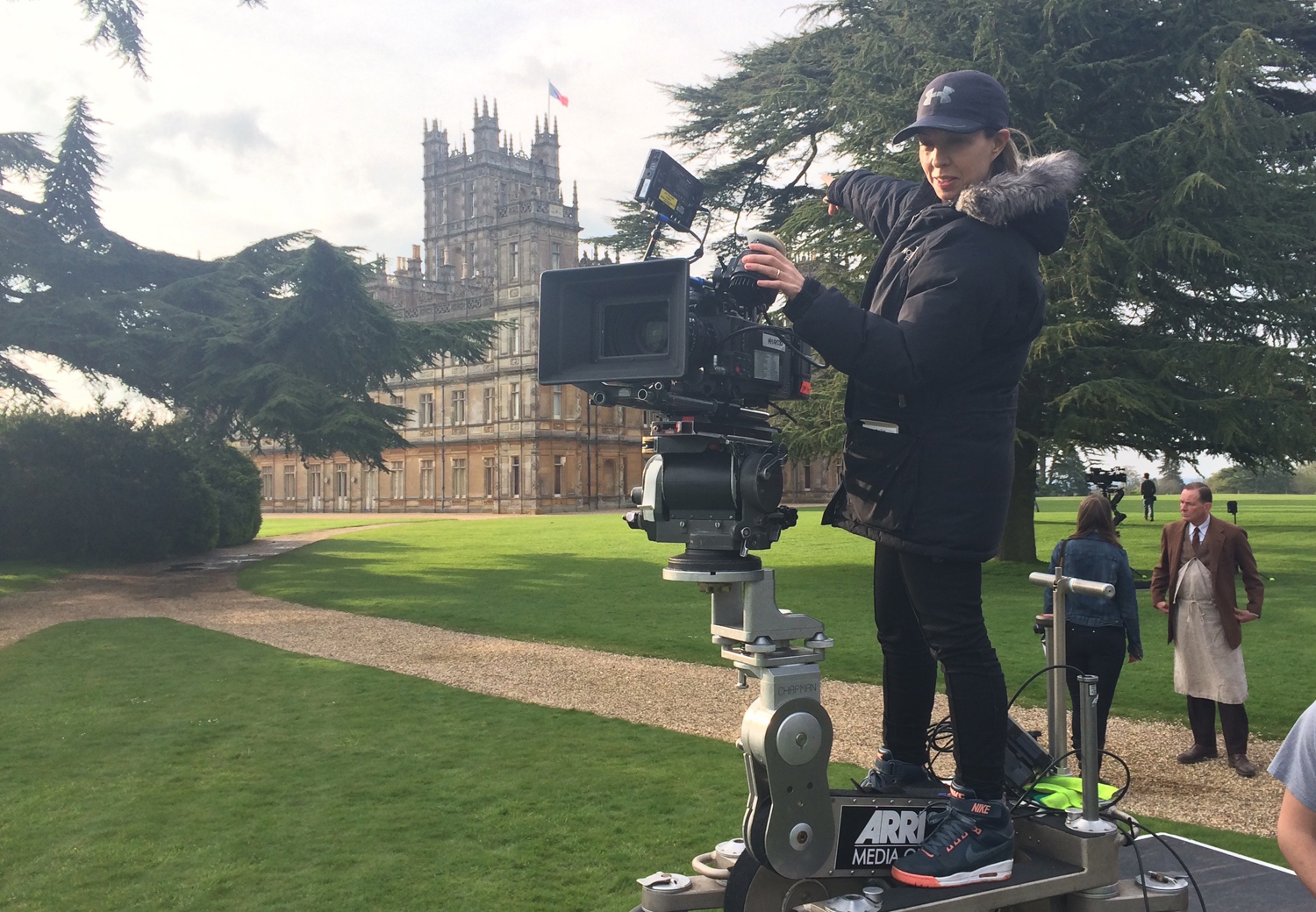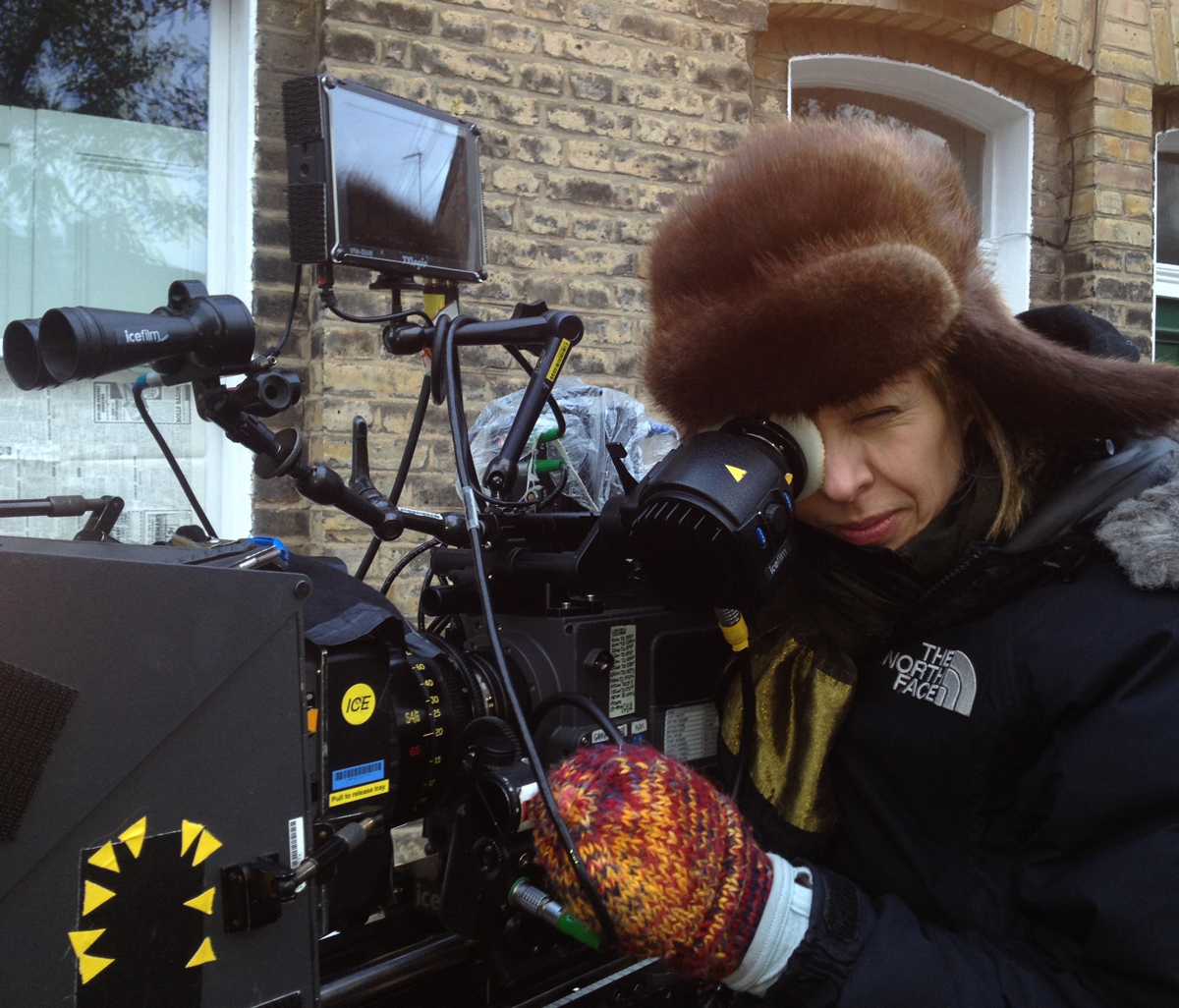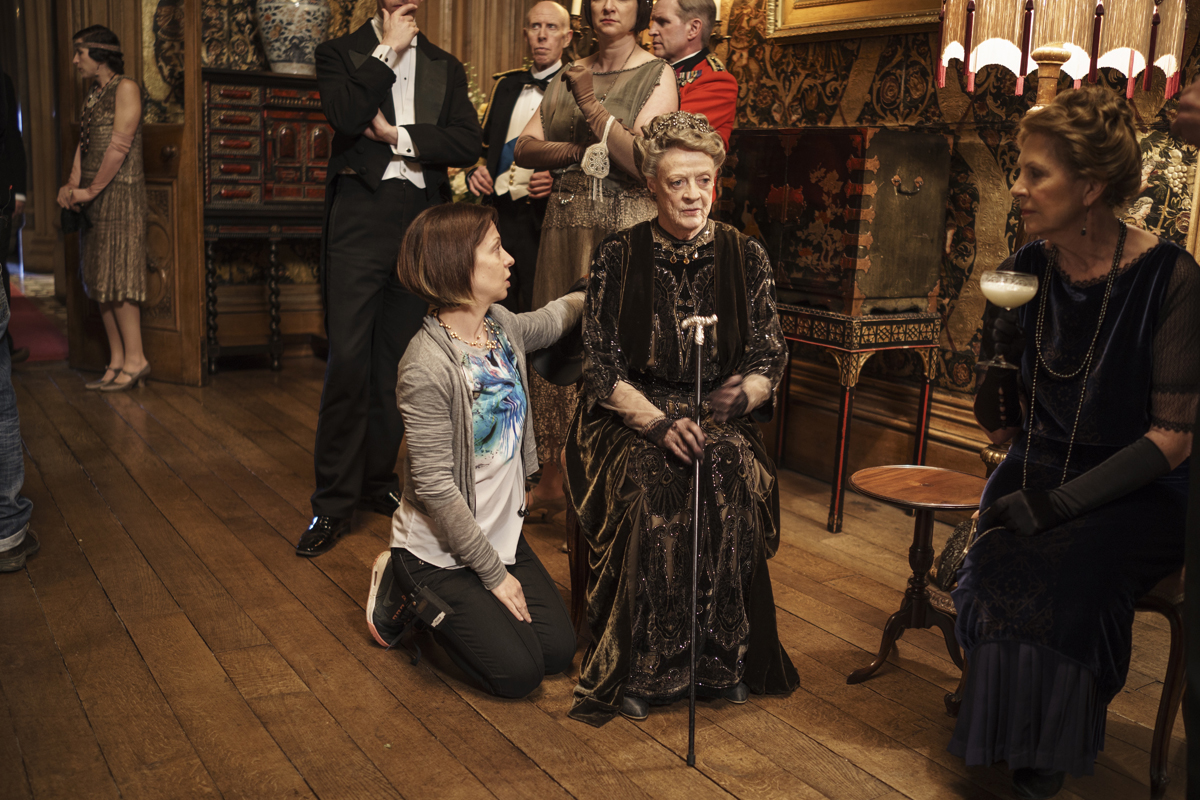
- Industry
Director Minkie Spiro: It’s Not A Gender Thing; It’s A Work Thing
One in a series profiling women working in Hollywood today.

“I’m a stubborn mule. When I was told that I couldn’t walk again,” says British director Minkie Spiro (Downton Abbey, Skins, Call The Midwife), referring to being paralyzed as a result of wrong medication, “I was almost like – F*** off. I WILL!” That inner belief and drive has sustained the diminutive Spiro whenever people have taken her size and gender into consideration rather than judged her on her skills as a director. She’s covered the Bosnian war and the Ethiopian airlift as a photojournalist and according to Dame Pippa Harris of Neal Street Productions (Revolutionary Road, Jarhead), that tenacity and practical application is something she brings to the set. “She was a perfect fit for Call the Midwife because she effortlessly commands respect, and the cast was very experienced and didn’t suffer fools gladly. She combines visual flair with an attention to detail so the visuals are rooted in storytelling and performance. For some directors the visual is all they care about – where they can swing a camera. They forget the storytelling. She’s the opposite of that. Yes, she is a tiny woman,” laughs Dame Pippa. “And yes the crew are significantly taller than her, but she’s a very good filmmaker. Just look at her work. The fact she’s a woman is irrelevant because as a producer all you’re doing is looking for the best talent.”
Not everyone is as open minded, says Spiro who continues to direct television but is also fielding film projects. “I remember on one shoot very early in my career, I gave feedback to the director of photography and he turned and said, ‘You can’t do that, love.’” She laughs a little incredulously. “I have a vast knowledge so it’s hard to pull the wool over my eyes,” Minkie notes with the confidence born of study and on-the-job experience, “So I said, ‘Actually, Bub, this set up calls for a da-da-da-da lens and we’ll do this move to get that in frame, and this is how we’ll do it.’ I know my stuff inside out, and he was like, “Yes Guv, Sorry Guv.”
“I’ve never gone ‘woe is me’, I’m a woman,” notes Minkie. “If you can prove you’ve got a brain, vision and a sense of humor,” and you deliver something unique, that’s the criteria. I believe you have to see the funny side of the crap you have to wade through and you can’t have a chip on your shoulder. I know everyone’s name on the set. It’s important to know every cog in the wheel and to choose your battles. The truth is I can do anything with a camera and if I can communicate effectively, then I win people over because they realize they can’t live without that vision.” When asked how she differs from her male counterparts, its not ability or results that she focuses on: “I’m more than comfortable doing and talking about the work but, ‘I’m rubbish at blowing my own trumpet. Maybe I’m silly, but I trust that the work will speak for itself.”
She’s also aware of paying the breaks forward. “I’m cognizant of hiring minorities. I go out of my way to see how I can diversify the crew. We had a female black camera assistant on my last set.” She explains the significance of getting a chance to step into even the lowliest position for those on the outside. “You can only get to the top if you get in at the trainee position. You can’t become a focus puller until you’ve been a loader. I obviously don’t choose someone because of their color or gender. They have to be able to do the job, but I do try and give opportunities.”

What’s the best advice she can give others who want to follow in her footsteps? “It’s about respecting and understanding that it’s a business. People management is important. You have to respect the artists but don’t be scared of them. I gave Maggie Smith (Downton Abbey) direction and she said, “Thank you. People never give me direction.” Most importantly you’ve got to shoot the day. They won’t care if you’ve got the most stunning rushes if you haven’t shot the scenes. You’ve got to be good at all of it.”
So how does the recent import to the States deal with setbacks? “There’s occasional disappointment, that’s true of even the greatest, most established guys. Women directors can’t take it personally. There are jobs I don’t get even with my resume, even when I know I’m the right person to interpret the vision, and it ends up with some guy. It drives me looney tunes. I take a deep breath and move on.” “I know I’m a job for hire, but I can make the words on the page brilliant and totally surprise and out-perform within the mind of the producer, show runner and writer. But you have to get the opportunity to demonstrate that. You have to accept the process. Coming from a documentary background, I know you’ve got to step outside of the industry and remind yourself of the real world, because that will make you a better director. You have to immerse yourself in the real world to interpret it.” As to whether women can find parity in Hollywood, Minkie has a no nonsense attitude. “My dream was the creative world. Both my parents were academics and fought to stop me from entering this world. I made my own dream. I was not given a dream. I made it.”